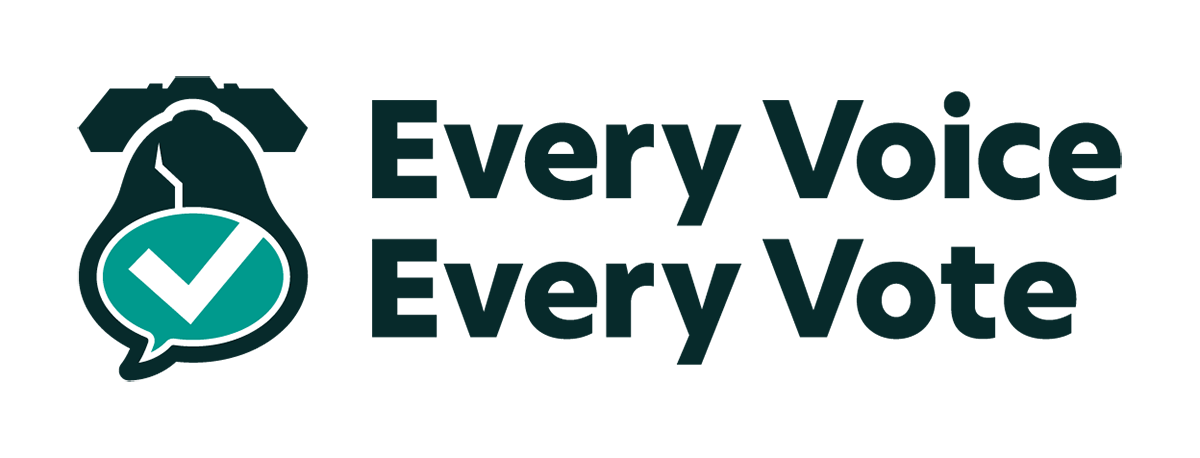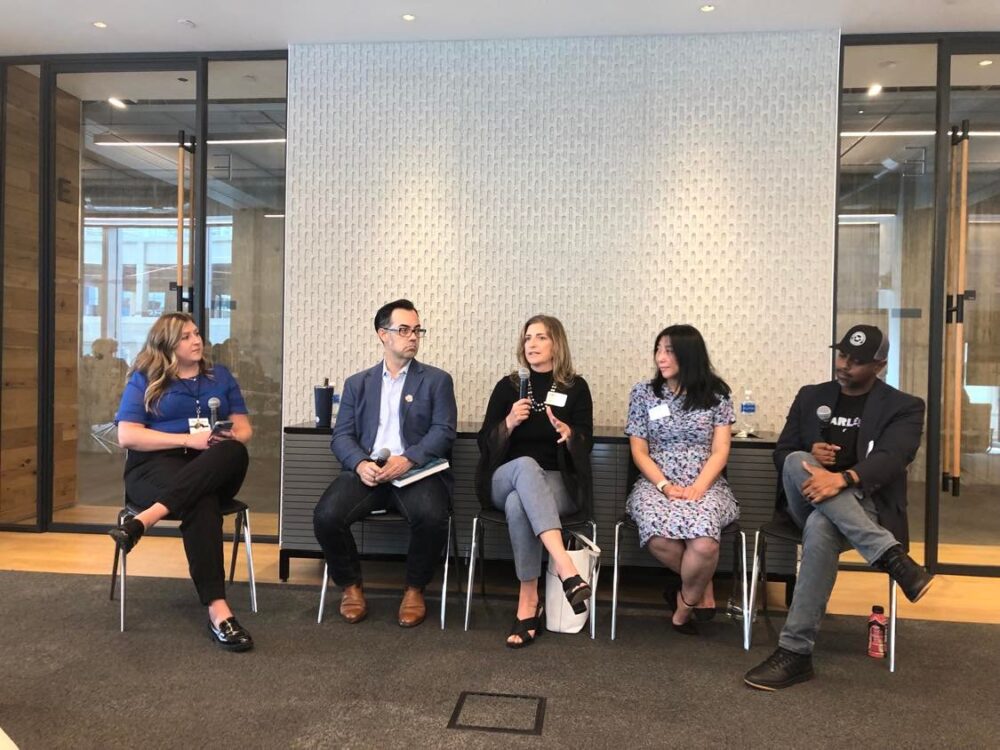
This story is a part of Every Voice, Every Vote, a collaborative project managed by The Lenfest Institute for Journalism. Lead support is provided by the William Penn Foundation with additional funding from The Lenfest Institute, Peter and Judy Leone, the John S. and James L. Knight Foundation, Harriet and Larry Weiss, and the Wyncote Foundation, among others. To learn more about the project and view a full list of supporters, visit everyvoice-everyvote.org. Editorial content is created independently of the project’s donors.
During an Every Voice, Every Vote initiative-tied session of the Builders Conference during Philly Tech Week 2023 presented by Comcast, tech, policy and activism pros discussed how government and entrepreneurs interact — and what advocacy for tech policy looks like from their varied perspectives.
Here is a sample of what these stakeholders think the government is doing right, as well as what they think should receive more attention.
What positive things has the government done to support tech?
John Foster, partner and COO of Fearless in Baltimore, noted the federal government recently passed the Evidence Act, which will launch the evalutation.gov platform for evaluating and determining the effects of all policies.
Hua Wang, executive director of the Global Innovation Forum in DC (and former Technical.ly editorial intern), said she was excited about the government’s Indo-Pacific Economic Framework for Prosperity, which will help entrepreneurs do business internationally.
“So much economic power and potential in facilitating digital technologies, helping entrepreneurs make it easier to do business abroad,” she said. “And this agreement is likely to be finalized this year in November.”
Anne Gemmell, a director of policy and advocacy at the 10K Independents Project in Philly, said that at the end of previous Gov. Tom Wolf’s administration, she worked on a five-year future of work strategy that involved collaboration from experts across Pennsylvania. However, it was unclear if this plan would survive the transition to the next governor as there is so much uncertainty when political offices shift.
When Gov. Josh Shapiro came into office, he accepted the plan.
“His very first executive order was lifted right out of that document. He said, 90% of state workers no longer need a college degree, which is huge for the talent shortage,” Gemmell said. “And there’re a lot of devils in the details and HR processes and whatnot, but I was really encouraged by that — not just because I was involved in it, but because I know how much ego is involved in politics, and that’s how egoless it really was for Shapiro.”

(L to R) Paige Gross, Brady Dale, Anne Gemmell, Hua Wang and John Foster. (Photo by Sarah Huffman)
What should policymakers address next?
Wang said she would like to see connections between key stakeholders in tech and government. This includes global corporations that have a lot of resources, government leaders with political power to make change and entrepreneurs developing helpful technology.
“I’m a big fan of public-private partnerships that connect all of these stakeholders together, provide technologies and training, help entrepreneurs use this tool and really think about how to go global on day one,” she said. “And to be able to connect the resources to allow every entrepreneur access to global markets.”
Gemmell said wants technology to help mothers and young children receive more support and resources.
With a professional background related to advocacy for public education and pre-K, Gemmell said that while quality pre-K education is good, it isn’t enough to close the gaps for kids who are dealing with trauma or poverty. She also acknowledged the many unused resources that families aren’t aware of.
“ChatGPT and all these AI tools are only going to widen the chasm,” she said. “And we have a K-12 system, we have an education system that hasn’t pivoted to adjust to the knowledge economy, let alone the AI economy. And so that’s my dream of big data and tech tools in the hands of the people who need them most as soon as possible.”
Foster said the digital divide that exists in cities such as Baltimore and Philly also needs to be addressed. He recounted a story about a family whose kids struggled to attend online school during the pandemic because they did not have enough devices for all the children to be in class at the same time.
“It pisses me off that we’ve been talking about this for so long. We know that it is a problem,” he said. “And so I’m tired. So you’re talking about what I want in the future, screw the future. How about we do something now about some of this stuff.”
Sarah Huffman is a 2022-2024 corps member for Report for America, an initiative of The Groundtruth Project that pairs young journalists with local newsrooms. This position is supported by the Lenfest Institute for Journalism.Join the conversation!
Find news, events, jobs and people who share your interests on Technical.ly's open community Slack

Philly daily roundup: Women's health startup wins pitch; $204M for internet access; 'GamingWalls' for sports venues

Delaware daily roundup: Delmarva Power vendor stats; DelDOT's $15M federal grant; 50 best companies to work for

DC daily roundup: Inside UMCP's new ethical AI project; HBCU founder excellence; a big VC shutters MoCo office



